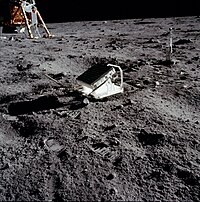
Explicitly modelled deep-time tidal dissipation and its implication for Lunar history
Sign Up to like & getrecommendations! Published in 2017 at "Earth and Planetary Science Letters"
DOI: 10.1016/j.epsl.2016.12.038
Abstract: Abstract Dissipation of tidal energy causes the Moon to recede from the Earth. The currently measured rate of recession implies that the age of the Lunar orbit is 1500 My old, but the Moon is… read more here.
Keywords: time; lunar history; dissipation; tidal dissipation ... See more keywords

Seismicity on tidally active solid-surface worlds
Sign Up to like & getrecommendations! Published in 2019 at "Icarus"
DOI: 10.1016/j.icarus.2019.113466
Abstract: Tidal interactions between planets or stars and the bodies that orbit them dissipate energy in their interiors. The dissipated energy heats the interior and a fraction of that energy will be released as seismic energy.… read more here.
Keywords: seismicity tidally; energy; tidal dissipation; seismic activity ... See more keywords

Tidal dissipation in evolving low-mass and solar-type stars with predictions for planetary orbital decay
Sign Up to like & getrecommendations! Published in 2020 at "Monthly Notices of the Royal Astronomical Society"
DOI: 10.1093/mnras/staa2405
Abstract: We study tidal dissipation in stars with masses in the range $0.1-1.6 M_\odot$ throughout their evolution, including turbulent effective viscosity acting on equilibrium tides and inertial waves in convection zones, and internal gravity waves in… read more here.
Keywords: orbital decay; mass; planetary orbital; dissipation ... See more keywords

The TRAPPIST-1 system: orbital evolution, tidal dissipation, formation and habitability
Sign Up to like & getrecommendations! Published in 2018 at "Monthly Notices of the Royal Astronomical Society"
DOI: 10.1093/mnras/stx2980
Abstract: We study the dynamical evolution of the TRAPPIST-1 system under the influence of orbital circularization through tidal interaction with the central star. We find that systems with parameters close to the observed one evolve into… read more here.
Keywords: order; system; evolution; tidal dissipation ... See more keywords